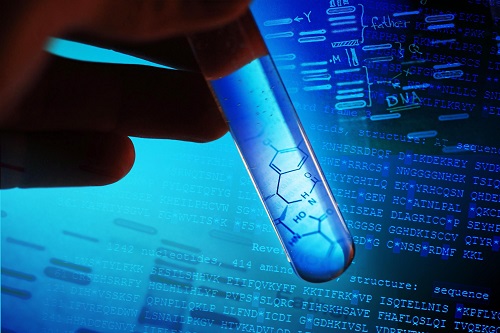By
Ricardo Swire
Jamaica has chosen to follow its Latin American neighbors’ use of a distinctive criminal justice tool, the Deoxyribonucleic Acid (DNA) Registry actively assisting the island’s internal security officials and Jamaica Constabulary Force (JCF) detectives.
Jamaica’s 2015 DNA Evidence Act gave official permission for samples to be taken from suspects or criminal characters, collected and stored for forensic investigation comparison. JCF crime scene officers now depend less on fingerprints to solve crimes. Samples are delivered to the DNA registry “Custodian.” The Institute of Forensic Science & Legal Medicine, managed by the Ministry of National Security, oversees this function. In criminal offences, for which suspects are identified, his/her DNA sample is compared to crime scene evidence. For cases of an unidentified suspect biological evidence, recovered at the crime location, is compared to offender profiles in DNA Registry archives.
DNA is recovered from bodily fluids, such as blood and semen, indicated by stains left at a crime scene. Due to human genealogies inherited parts of DNA vary from person to person. This variation is called “polymorphism,” or one whose framework can be applied to values of other types. Touch DNA is retrieved from a person’s skin cells. DNA chip technology uses nanotechnology to augment test speed and precision. Results depend on matching algorithms.
Regional assessment found smaller, faster, less costly investigation tools reduce government’s capital investment for its crime laboratory while increasing capacity to accurately process more cases. Before the Bahamas established its own DNA Lab in early 2013, housed in the Royal Bahamas Police Force (RBPF) Headquarters’ southern section, out-sourcing tests to DNA Labs International in Florida was costly. The company billed US$50,000 annually minus transportation. Routine turnaround times of one and two months for results unhelpful.
Royal St Lucia Police Force (RSLPF) detectives attribute absence of Forensic Lab facilities to unsolved crime numbers on the island. DNA evidence is sent overseas for testing. The former Forensic DNA Consultant, originally hired to establish St Lucia Forensic Lab’s Testing Unit, wrote a fascinating report after his departure. Between January 2, 2010 and March 31, 2013 the Lab’s DNA Testing Unit specialist requested RSLPF investigation notes to support submitted tests.
The formal response received was such documents “are passed to the Director of Public Prosecutions (DPP) office.” The ex-Forensic DNA Consultant documented to the time of his March 2013 parting no RSLPF notes were delivered. He added “there was no redundant record keeping outside of the DPP, or upper lab management, except in our DNA section.” In 2015 the Forensic Lab was closed. On January 5, 2017 St Lucia’s Prime Minister (PM) announced the national Forensic Lab’s privatization.
Between 2009 and 2011 Royal Barbados Police Force’s (RBPF) DNA and forensic cases were stalled, after the Forensic Science Center’s closure for repairs. The facility continued to accept submissions, although verifications could not take place until it reopened in late 2011. In September 2016 a unique case of identification, without fingerprints or facial recognition, challenged RBPF officers. Two male bodies, in advance decomposition stages, were retrieved by Barbados Defence Force Coast Guard and RBPF members floating in territorial waters. The scientific route of DNA testing the only option for recognition.
In 2013 as part of a Guyana Police Force (GPF) modernization exercise, promoted under the US$19.5 million Citizen Security Program, the Director of Barbados Forensic Science Center was contracted by the Guyana government. Her role was consultation on modifications of Guyana’s more than GD$450 million Forensic Lab at Turkeyen, East Coast Demerara.
Across the waters Royal St Kitts & Nevis Police Force (SKNPF) crime scene officers send DNA evidence and forensic samples on a twenty minutes flight to the US financed Computer Forensic Laboratory in Antigua. America contributed US$500,000 to purchase state-of-the-art equipment, plus US$200,000 for specialist cyber-forensic training at the Antiguan Lab. A local Assistant Commissioner of Police (ACP) informed forensic samples are also dispatched to labs in Trinidad & Tobago (T&T) and America for testing.
Caribbean law enforcement adjustments mirror the US Federal Bureau of Investigations (FBI) Combined DNA Index System (CODIS). Since the late 1980s America’s federal and state law enforcement agencies used CODIS for comparison of crime scene evidence against a convicted criminal’s DNA. Retaining samples allows labs to update their technology. Since the FBI switched DNA profiling to the modern method labs retyped old, stored samples to create a new database.
CODIS is subdivided, the Offender Index with more than ten million DNA identities. Arrestee Index had one point three million DNA profiles as of January 2013. Two other main subdivisions are Forensic Index and Missing Persons Index. CODIS capability is most impactful in America identifying serial killers and unique crime patterns.
Ricardo Swire
Ricardo Swire is the Principal Consultant at R-L-H Security Consultants & Business Support Services and writes on a number of important issues.



No Comments Yet!
You can be first to comment this post!